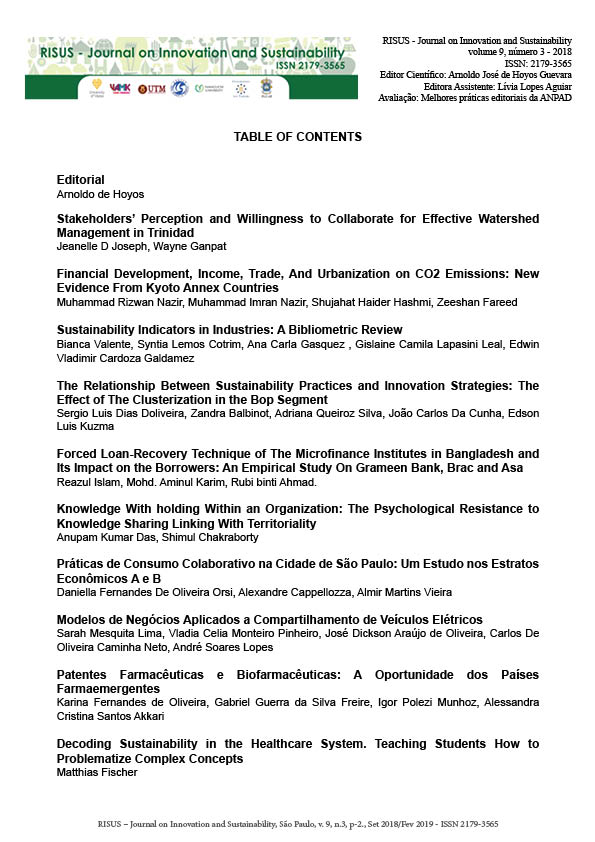SUSTAINABILITY INDICATORS IN INDUSTRIES: A BIBLIOMETRIC REVIEW
DOI:
https://doi.org/10.24212/2179-3565.2018v9i3p38-52Keywords:
Sustainability Indicators, ProKnow-C, Sustainable IndustryAbstract
Sustainable development gained prominence in 1992 at the United Nations Conference about Environment and Development, and was presented as a global strategy to ensure society’s access to natural resources. One proposed practice to monitor industrial performance is sustainability indicators, commonly divided into three dimensions: environmental, social and economic. The objective of this work is to present a bibliometric study on the scientific production of Sustainability Indicators (SI) in the Industries, from January 2007 to October 2017. Therefore, the methodology used was Proknow-C, with quantitative and qualitative approach, from the keywords: “Sustainability Indicators” and “Indicators of Sustainability” in the database provided by the Scopus platform. The papers selected for the composition of the final portfolio contribute to the construction of knowledge about the proposed theme, offering a broad view of Sustainability Indicators applied to industries. A total of 28 sustainability indicators were identified, of which 11 are related to the environmental dimension, which correspond to three aspects (water, energy and gases emitted), 7 in the economic dimension, framed in two aspects (present value in the plant and investment) and 10 in the social dimension, corresponding to the aspects of accidents, comfort / safety and training. The survey of the Sustainability Indicators allows establishing guidelines for the construction of a management system aligned with the sustainability dimensions in the industriesDownloads
Published
2018-10-26
Issue
Section
Papers
License
This Journal is licensed under a Creative Commons Attribution-Non Commercial-No Derivers 4.0 International license.
1.The author (s) authorize the publication of the article in the journal;
2.The author (s) warrant that the contribution is original and unpublished and is not in the process of being evaluated in other journal (s);
3. The journal is not responsible for the opinions, ideas and concepts emitted in the texts, as they are the sole responsibility of its author (s);
4. The editors are entitled to make textual adjustments and to adapt the articles to the standards of publication.


